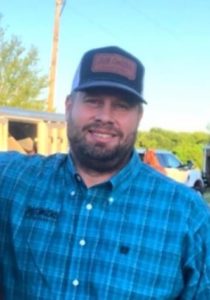 Total Earnings: $726,261
Total Earnings: $726,261
AAAA NCHA Judge, Russ Carroll grew up in the cutting industry. He loped horses for his father, cutting horse trainer Rusty Carroll.
Carroll warmed up horses for his dad at eight years old. He built up a client base for training horses while studying at college. After graduating from the University of Houston with a business management degree, he knew he wanted to pursue cutting professionally.
He currently operates his training program in Rockwall, Texas and recently made the 2021 Open Futurity Finals.
Inspired by his dad who was a well regarded judge, Carroll got his judges card when he was 26.
“My dad thought it was a good idea because I had enough mileage under my belt. He thought I would do fine. When you’re a young trainer, every penny helps. Once I did go and judge a few times I immediately saw how beneficial it was going to be to my own training program. It made me so much more aware. Once I got a taste of that it made me want to do it even more.”
“I think it’s giving back to the Association. I think us trainers, and I’ve always felt like this, there should be more emphasis on trainers having to go judge some cuttings. I feel like if we are the professionals and that’s the way we want to be perceived, we should have the most knowledge as far as getting a cutting right.”
What do you look for as a judge?
“…One of the things [my dad] told me that sticks out to me was if it looks like something that you would like to be riding and it’s comfortable and it looks like it feels good, most likely it is [good]. If you’re having to talk yourself into it, you can’t manufacture something that isn’t there.”
Carroll’s dad also advised him to “Judge from the shoulders down of the person showing the horse. That’s been helpful to me. I don’t get caught up with who it is. If it’s good, it’s good. If it’s not, it’s not. A good run stands out.”
What are the most common mistakes you see?
“I think overall the biggest thing I see is people not getting set up correctly on their cow before they put their hand down. I think a lot of runs just start off in a bad or negative spot. Meaning they don’t get pushed up enough or they don’t get even on their cow. I tell all my clients to get up out of the herd. I think that paints a better picture. [It shows] that you’re confident, that you’re trying to win something and you’re not as defensive looking. It makes it look more offensive…
“You have to put your hand down in relation to that cow so that no matter what that cow’s first move, if it’s left or right, to you, away from you, you’re in a good spot to handle whatever it throws at you. People will put down just a tick to the left or to the right and when they do that, they are depending on that cow to move to fit what they started off doing. Most times, the cow is not going to do that… I’m going to give a person credit if I feel like they’re in control of the situation, not just skimming by.”
What would you say to the person who grumbles about their score?
“[Sometimes] it’s hard not to be disappointed. I would say if you feel that way I think the best thing to do is…talk to a peer or your turnback man. And make sure it’s not just somebody that’s just going to tell you what you want to hear. Someone that will be honest with you. Even when you’re frustrated I think it’s beneficial to try to keep an open mind and try to figure out what the judge saw that you didn’t. And judges make mistakes. I’ve been on both ends of it when I’ve shown, it’s just the nature of the beast. At the end of the day it’s a man’s opinion, he took the job and you have to respect what he decides.”
